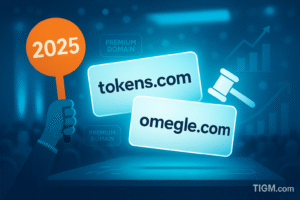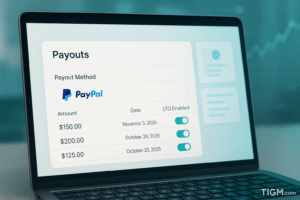Strategic shift at IONOS puts one of the world’s largest parking marketplaces on the block.
IONOS Group SE has initiated the sale process for Sedo, the domain parking and monetization platform that’s been a fixture in the aftermarket for over two decades. The transaction is expected to close sometime in 2026, pending buyer identification and regulatory approvals.
IONOS hasn’t publicly disclosed why it’s divesting Sedo, but the move signals a strategic pivot away from domain monetization services.
What Sedo represents
Sedo operates one of the world’s largest domain parking networks, serving millions of parked domains that generate revenue through advertising. The platform also runs a marketplace connecting domain sellers with buyers, facilitating thousands of transactions annually.
The monetization business generates recurring revenue from domain investors who park their portfolios on Sedo’s platform. That predictable income stream makes Sedo an attractive acquisition target for the right buyer.
Sedo’s marketplace component includes brokerage services for premium domain sales, escrow functionality, and appraisal tools. The company has facilitated some high-profile seven and eight-figure domain transactions over the years.
Who might buy Sedo
Likely acquirers include domain registrars looking to expand into aftermarket services, private equity firms attracted to the recurring revenue model, or competing parking platforms seeking market share consolidation.
A registrar acquisition would make strategic sense. Combining registration services with parking and aftermarket functionality creates a comprehensive domain lifecycle business. Several major registrars have already built or acquired similar capabilities.
Private equity buyers might see opportunity in optimizing Sedo’s operations or bundling it with other domain industry assets. The parking business could also attract attention from ad tech companies interested in accessing Sedo’s traffic inventory.
Impact on domain investors
For the thousands of domain investors using Sedo’s parking services, the ownership change raises questions about platform continuity and revenue share arrangements. New ownership typically brings operational reviews and potential policy changes.
Sedo’s marketplace users will be watching to see if transaction fees, payment terms, or service levels shift under new management. Competing platforms could attempt to poach users during the transition uncertainty.
The bigger picture
IONOS divesting Sedo suggests the web hosting giant sees better growth opportunities elsewhere. Domain parking revenue has faced headwinds as advertising economics have shifted and type-in traffic has declined.
The sale reflects broader consolidation trends in the domain industry. Larger players acquire smaller platforms while companies refocus on core competencies.
For buyers, Sedo represents established technology, existing customer relationships, and market position. Whether the new owner invests in revitalizing the platform or simply extracts value from existing operations remains to be seen. The domain industry will be watching as potential buyers emerge throughout 2026.






